Hair Loss in Guinea Pigs
While there are two breeds of guinea pigs that are naturally not completely covered in fur, if they begin to experience hair loss, this is an indication of a problem. Hair loss can be localized or generalized, slow or sudden, and obvious or hidden. Knowing the causes of hair loss in guinea pigs can help you avoid it as well as help you know what you need to do to identify and treat it.
What Is Hair Loss?
Hair loss is a decrease in the normal amount of hair or fur that a guinea pig has. It occurs when the hair that should be somewhere on your guinea pig falls out. This results in a thin hair coat or bald patches and can happen anywhere on your guinea pig's body. It is known medically as alopecia.
Symptoms of Hair Loss in Guinea Pigs
Hair loss has a few causes but all the symptoms are usually pretty obvious.
If a guinea pig is losing hair, the first sign you may see is heavy shedding. When you are playing with, holding, and petting your guinea pig, more fur will be left on you and the ground than usual from your guinea pig. You may also see excessive amounts of fur in their cage. Eventually their hair coat won't be as thick as it used to be and you will see bald patches on the skin.
Causes of Hair Loss
Hair loss in guinea pigs is often classified as either self-induced or non-self-induced. Self-induced hair loss is when a guinea pig has a problem that causes it to itch or chew their hair out and non-self-induced hair loss is when the hair falls out without the guinea pig having itched or chewed it out.
- Mite infestation
- Lice infestation
- Ringworm (fungal) infection
- Barbering (chewing hair)
- Ovarian cysts
- Hyperthyroidism
- Scurvy (vitamin C deficiency)
- Cushing's disease
- Pregnancy
- Postpartum
- Cutaneous lymphoma
Diagnosing Hair Loss in Guinea Pigs
Since there are a variety of reasons why a guinea pig may be experiencing hair loss, there are also a variety of tests that may need to be run in order to diagnose the cause of it. These tests may include the following:
- Trichograms from hair plucks
- Bloodwork
- Tape strips of skin cells
- Skin cytology
- Fungal culture
- Bacterial culture
- Skin biopsy
- Ultrasound
- X-rays
A full history will be obtained to determine whether or not breeding, birth, hair trauma from themselves or other guinea pigs, or nutritional deficiencies have occurred but if external parasites, ringworm, or bacterial infections are suspected, hair and skin tests will be recommended. If no evidence of these causes are found, biopsies, bloodwork, X-rays, or an ultrasound may be necessary to determine the cause and underlying reason for the hair loss.
Treatment
Depending on the cause of the hair loss, the treatment for it will vary. Medications may be needed to kill mites, lice, fungus (like ringworm), or bacteria as well as treat Cushing's and hyperthyroidism, but sometimes environmental and dietary changes will also need to be made. If your guinea pig is diagnosed with ovarian cysts, surgery may be needed to remove them. Of the aforementioned causes of hair loss in guinea pigs, cutaneous lymphoma is the poorest prognosis of all of the possible causes.
Prognosis for Guinea Pigs with Hair Loss
The prognosis for a guinea pig with hair loss is usually good, but a diagnosis will be needed to ensure any necessary treatments are received. Some medications may be needed lifelong in order to manage some serious underlying causes of hair loss, but other medications are only needed temporarily until the cause is cured. Some causes of hair loss, like pregnancy, will disappear on their own and have a very good prognosis.
For example, parasites and skin infections have short term treatments but Cushing's and hyperthyroidism will require lifelong treatments or may entail radiation therapy or surgical intervention. Hair loss from ovarian cysts have a good prognosis if surgery is performed, and dietary changes can easily fix scurvy. Cutaneous lymphoma though, unfortunately does not have a good prognosis but is also not as common as some of the other causes of hair loss.
How to Prevent Hair Loss
There are some easy things you can do to help prevent hair loss in your guinea pig. To prevent your guinea pig from getting mites and lice that cause them to itch and develop hair loss, freezing hay, pellets, and bedding before putting them in the cage will kill off any unwanted pests that may be lurking in these items.
Next, quarantining any new guinea pigs for four weeks before they will be interacting or living with your guinea pig will help prevent them from spreading any fungal or bacterial infections they may be harboring to your guinea pig.
To help prevent scurvy, you can give guinea pig pellets that have vitamin C, but ensure that it is not older than 90 days past its manufacturing as this type of vitamin rapidly degrades.
Finally, if you have a female guinea pig, you can prevent ovarian cysts, pregnancy, and postpartum hair loss by spaying them.
Is Hair Loss Contagious to Other Animals?
Hair loss itself is not contagious but the thing that causes the hair loss can be. Ringworm and mites are particularly contagious to other animals and lice is contagious specifically to other guinea pigs. These causes of hair loss are why quarantining any new guinea pig before introducing them to your current guinea pig is important.
Is It Contagious to Humans?
Most causes of hair loss are not contagious to humans but there are a couple of them that are. These causes are called zoonotic because they can be transmitted from an animal to a human. Ringworm, a fungal infection, is one zoonotic cause of hair loss in guinea pigs so it can easily spread from a guinea pig to a human. The other zoonotic cause of hair loss in guinea pigs is a specific type of mite called Trixacarus caviae which causes sarcoptic mange.
RECOMMENDED NEWS
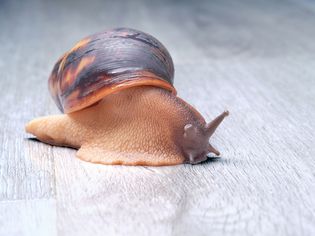
How Much Do Snails Sleep?
Some pets are as slow as sloths so it can be difficult to tell if they are alive. Snails are one su...
Read More →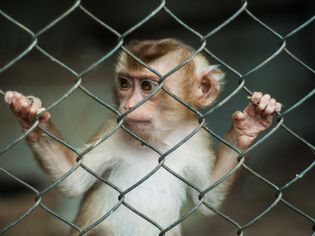
Should You Keep a Pet Monkey?
Taking on a pet monkey is not like caring for most other pets. A well-cared-for monkey can generall...
Read More →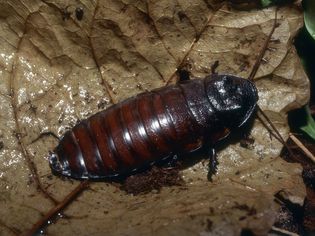
Should You Keep a Madagascar Hissing Cockroach as a Pet?
Have you ever considered keeping a cockroach as a pet? Madagascar hissing cockroaches, otherwise kn...
Read More →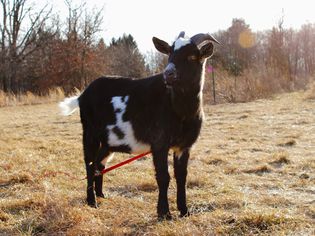
Should You Keep a Goat as a Pet?
Although they are traditionally thought of as farm animals, goats also make good pets. A perennial...
Read More →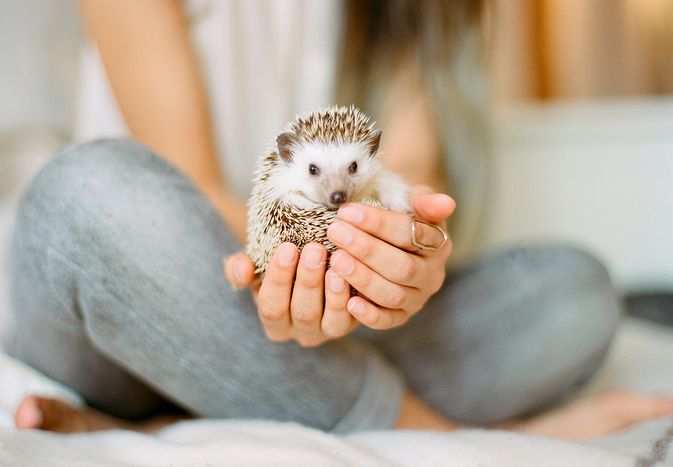
What Is an Exotic Pet?
What is considered to be an exotic pet depends on context, but it is largely agreed upon that anyth...
Read More →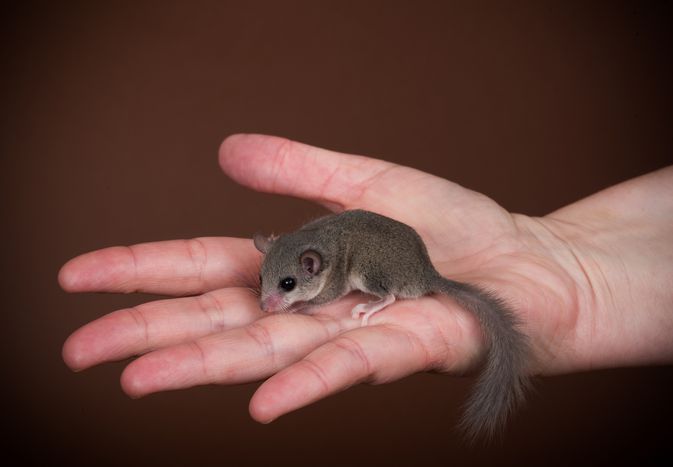
Should You Keep an African Dormouse as a Pet?
The African dormouse, also known as a micro squirrel, is a tiny rodent that looks a lot like a very...
Read More →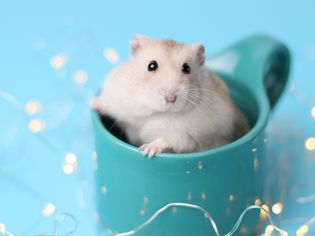
7 Reasons Why Hamsters Make Great Pets
While the decision to bring home any new pet requires careful consideration, hamsters can make grea...
Read More →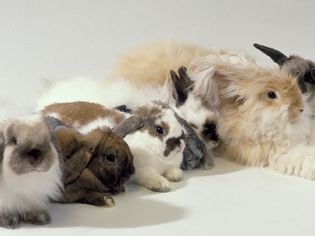
An Overview of Rabbit Fur Colors and Patterns
The number of coat colors that pet rabbits can come in is long and sometimes confusing. The followi...
Read More →
Tail Injuries in Degus
With their playful personalities and charming appearance, degus are popular exotic pets for many ow...
Read More →
Comments on "Hair Loss in Guinea Pigs" :